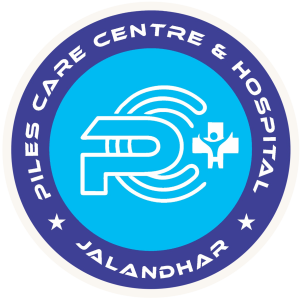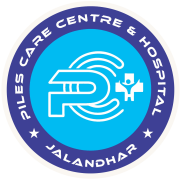
In the realm of healthcare, open conversations about anorectal diseases are often met with hesitation, embarrassment, and even shame. This silence surrounding conditions like piles, fissures, fistulas, and pilonidal sinus can lead to delayed treatment, further exacerbating discomfort and potential complications. It’s time to shed light on the stigma that shrouds anorectal diseases, understand its impact, and encourage individuals to seek timely medical attention without fear or shame.
The Veil of Stigma:
Anorectal diseases, though common, are frequently enveloped in stigma due to their intimate nature. People may feel ashamed or embarrassed to discuss symptoms such as pain, itching, bleeding, or discomfort in the anal area. This reluctance to seek medical help can stem from cultural taboos, societal expectations, or fear of judgement, creating a barrier to effective treatment.
The Domino Effect, Delayed Treatment:
The consequences of staying silent about anorectal diseases can be significant. Delayed treatment often allows the condition to progress, leading to increased pain, discomfort, and complications. An untreated fissure can evolve into a chronic issue, a minor pilonidal sinus can turn into an abscess, and a small pile can lead to bleeding and prolapse. The fear of embarrassment can unknowingly contribute to a deteriorating health situation.
Impact on Quality of Life:
The stigma surrounding anorectal diseases doesn’t just affect physical health, it can also have profound psychological and emotional impacts. People might experience anxiety, depression, and a reduced quality of life due to discomfort and embarrassment. The constant worry of odour or visible symptoms can lead to social withdrawal, affecting relationships and overall well-being.
The Importance of Open Dialogue:
Breaking the cycle of shame starts with open conversations. Creating an environment where individuals feel comfortable discussing anorectal conditions is crucial. Medical professionals play a pivotal role in destigmatizing these topics by approaching them with empathy, sensitivity, and professionalism. By addressing concerns and providing accurate information, healthcare providers can empower patients to seek help without fear.
Debunking Misconceptions:
Misconceptions about anorectal diseases often fuel stigma. Some may mistakenly believe that these conditions are a result of poor hygiene or unclean habits. In reality, anorectal diseases can arise due to a variety of factors, including genetics, lifestyle, and diet. Raising awareness about the true causes of these conditions can dispel myths and reduce the shame associated with them.
Awareness:
Education is a powerful tool in eradicating stigma. Public awareness campaigns that shed light on anorectal diseases can play a pivotal role in normalising conversations. Sharing real stories of individuals who have overcome shame and sought timely treatment can inspire others to do the same. By highlighting that anorectal diseases are common medical conditions that deserve proper care, these campaigns can empower people to take charge of their health.
Seeking Treatment: A Brave Step:
Acknowledging an anorectal condition and seeking treatment is an act of courage, not weakness. Seeking medical help demonstrates self-care and a commitment to one’s well-being. Timely intervention can prevent the progression of diseases and alleviate discomfort. Remember, medical professionals are here to provide compassionate care and ensure your privacy.
The Path to a Healthier Future:
It’s time to break free from the chains of stigma that surround anorectal diseases. By encouraging open discussions, raising awareness, and providing accurate information, we can collectively dismantle the shame associated with these conditions. Let us foster an environment of acceptance, understanding, and support, enabling individuals to seek treatment without delay. Remember, your health matters, and seeking help is a step toward a healthier, happier life—free from the constraints of stigma.


